The rise of new powers and the transformation of international relations: Analyzing a historic shift for Paris in the face of an Africa seeking sovereignty. This may announce the end of the Françafrique.
Africa reclaims its rights
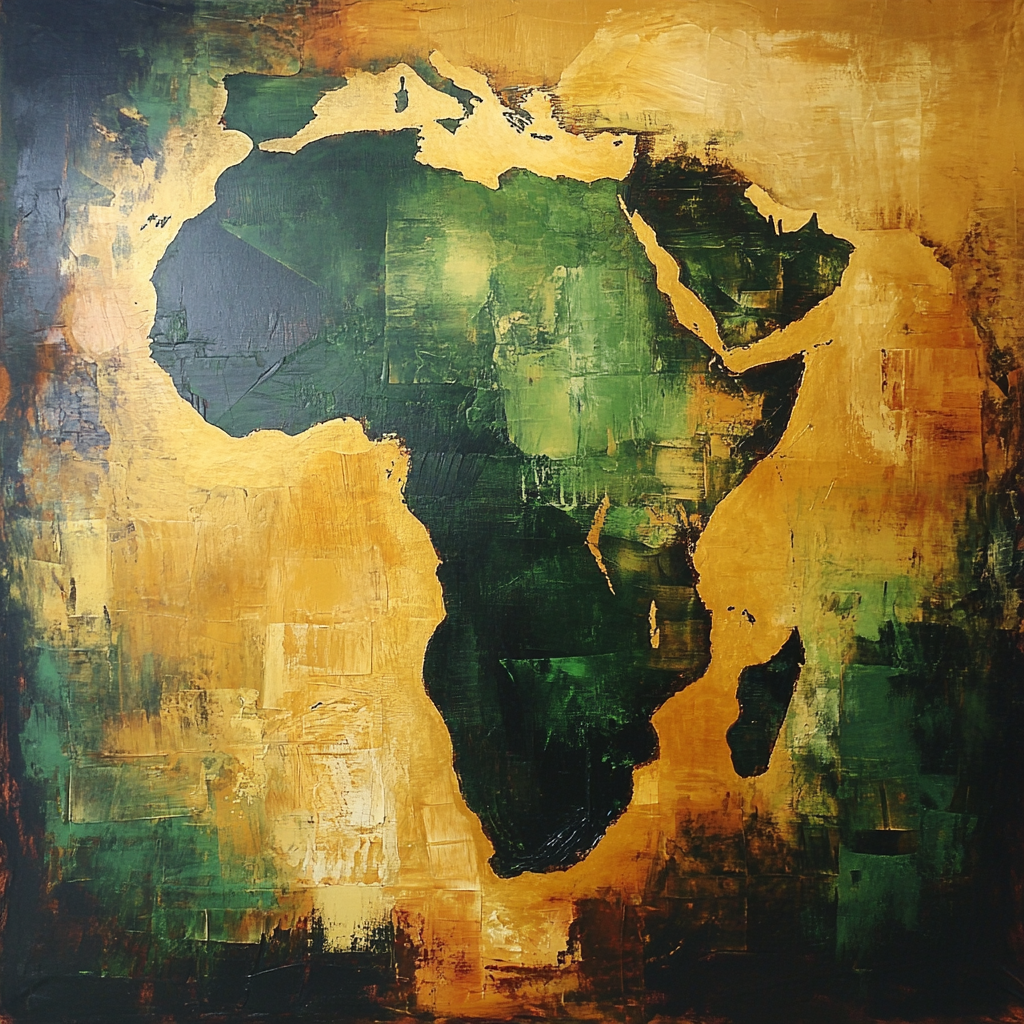
There was a time when foreign domination over Africa was an undeniable fact. A time when Western powers imposed their laws, their economies, their cultures, and even their leaders on the continent. But that time is over. Today, Africa is no longer a ward under supervision but a central player redefining its own future.
This shift did not happen overnight. It is the result of a long and complex process of reclaiming sovereignty, set in motion since the formal independence of the 1960s. For too long, this independence was merely an illusion, a stage play where African heads of state were little more than puppets under external control. But the strings have been cut.
The break with France, the most influential former colonial power on the continent, is not just a diplomatic accident. It is the symptom of a profound transformation. Africa is no longer a passive sphere of influence but a power in its own right, choosing its alliances. The recent decisions by several African states to sever military agreements with Paris, expel French bases, and denounce Françafrique are not trivial gestures. They mark a historic turning point.
In this context, the narrative that seeks to reduce this rejection to mere “Russian propaganda” or “Chinese manipulation” is not only simplistic but also deeply condescending. It denies the intelligence and sovereignty of African peoples, who are now asserting their right to determine their own destiny. The younger generations, hyper-connected and well-informed, refuse to endure the same mechanisms of exploitation as their predecessors. They are fully aware that Africa is a continent of immense wealth, and that its resources—whether mineral, cultural, or human—must first and foremost serve its own interests rather than those of foreign powers.
But breaking free from domination is not enough. Africa must also position itself within the new multipolar world. Former colonial powers are retreating, but new players are stepping in: China, Russia, Turkey, the Gulf states, and, most importantly, Africa itself through its own regional alliances. For this new era to truly bring prosperity, it is not just about replacing one form of tutelage with another but about establishing genuine African sovereignty.
In this article, we will analyze the roots of this rupture with France, the rise of new strategic partners, and the major challenges Africa faces in this historic transition. What is at stake today is not merely the decline of European influence but the affirmation of an Africa that is, at last, reclaiming its rights.
I. Françafrique: An era that has passed
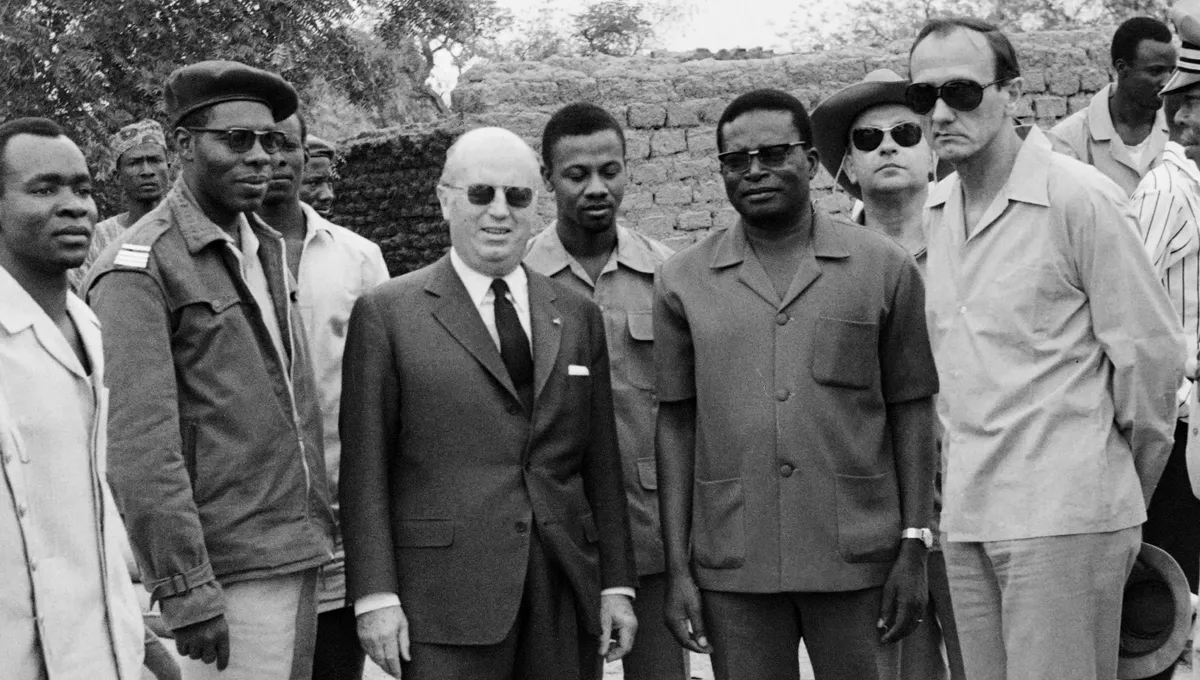
From imposed domination to chosen sovereignty
Africa is not breaking free—It is already free. What we are witnessing today is not a struggle for future independence but the collapse of an illusion—the awakening of a continent that refuses to remain a mere spectator in a story written elsewhere. Françafrique, the opaque system of post-colonial domination, has run its course. It survived the formal independence of African states, reinvented itself in various forms, but is now crumbling under the weight of collective rejection.
For decades, France masked its grip under the guise of a “privileged relationship,” a so-called “cooperation” meant to ensure stability and development in its former colonies. But the truth is starker: Françafrique was never anything more than a disguised tool of exploitation, where Africa was stripped of its wealth while a handful of corrupt elites were left to fight over the scraps.
1.1. Françafrique: A system of exploitation
A network built to plunder, not to help
If Africa is so rich in natural resources, why are its people still trapped in poverty? Because the economic framework inherited from colonization was never dismantled. French multinational corporations have built a sprawling network where African resources are extracted for the benefit of major French firms, while local populations remain the forgotten stakeholders of this wealth.
Corporate giants like Elf (now TotalEnergies), Bolloré, Bouygues, and Vinci control entire sectors—oil, transport, ports, telecommunications, banking, and large-scale retail. In countries like Gabon, Cameroon, Côte d’Ivoire, and Senegal, key infrastructures remain under French corporate control, depriving African states of true sovereignty over their own economies.
This stranglehold has been so pervasive that even a French minister, François Mitterrand, could declare in 1957:
« Without Africa, France will not have history in the XXIe century. »
In other words, without the continued exploitation of the continent, french power collapses.
The illusion of independence: A system of organized dependence
Independence was nothing more than an illusion. African presidents were only “independent” as long as they did not challenge French interests. Any attempt at emancipation was swiftly crushed.
- In 1963, Sylvanus Olympio, the first president of Togo, was assassinated for attempting to create a national currency and break free from the CFA franc.
- In 1987, Thomas Sankara, the revolutionary leader of Burkina Faso, was eliminated for seeking to end his country’s economic and political dependence.
- In 2011, Mouammar Kadhafi was overthrown and killed after proposing an independent African currency.
These political assassinations were no coincidence. Africa could never be truly free as long as it remained Paris’s backyard.
The CFA Franc: A currency of servitude
One of the most insidious tools of this domination remains the franc CFA. Created in 1945, this currency is controlled by the French Treasury, and African states using the CFA must deposit 50% of their foreign exchange reserves in France.
The consequences?
- A complete inability to implement sovereign monetary policies.
- Total dependence on fluctuations of the euro.
- An economy where French investors are protected, while African entrepreneurs are strangled.
It is no surprise, then, that several African countries have announced their intention to exit this system.
Support for corrupt and anti-democratic regimes
If Françafrique is collapsing, it is also because African peoples refuse to live under regimes imposed by Paris. For decades, France has installed and maintained obedient leaders, regardless of their democratic record.
- Omar Bongo in Gabon (41 years in power, backed by Paris).
- Idriss Déby in Chad (30 years in power, died in 2021, replaced by his son with France’s approval).
- Blaise Compaoré in Burkina Faso (27 years, exiled after a popular revolution).
But the tide has turned. The recent coups in Mali, Guinea, Burkina Faso, and Niger have toppled these pro-French regimes. The message is clear: Africa no longer wants puppets.
1.2. An african youth in total breakaway
If Françafrique is collapsing, it is because an entire generation refuses to perpetuate the cycle of submission.
Ultra-connected generations freeing themselves from the western lens
Once, narratives about Africa were controlled by the West. Today, thanks to social media, Africans are telling their own story.
- Twitter, TikTok, Facebook, and YouTube have become platforms for resistance.
- African intellectuals influence debates without seeking approval from Paris.
- Young Africans educate themselves, no longer waiting for France’s “validation.”
This generation never experienced colonization firsthand, but they still suffer its consequences. And they refuse to inherit this burden.
The Pan-African awakening: Sankara, Lumumba, Nkrumah…
Revolutionary African figures—long marginalized in school curricula shaped by French influence—are now essential references.
- Thomas Sankara, assassinated in 1987, is today a symbol of African sovereignty.
- Patrice Lumumba, the Congolese prime minister killed in 1961, inspires new generations.
- Kwame Nkrumah, the father of Pan-Africanism, is once again at the center of political debates.
Africa is reclaiming its history. And this reappropriation is a powerful weapon against those who still seek to dominate it.
Massive anti-imperialist protests
In the streets of Bamako, Niamey, and Ouagadougou, thousands of young people are protesting against the French presence.
- Russian flags are waved—not out of love for Moscow, but as a rejection of France.
- French military bases are stormed, with protesters demanding their immediate departure.
These scenes, unimaginable a decade ago, reflect a collective awakening: Africa no longer needs a guardian.
Macron’s failed attempts to win over african youth
Emmanuel Macron tried to give Franco-African relations a new face. But his condescending tone and empty rhetoric convinced no one.
- The Ouagadougou speech (2017) was seen as arrogant and dismissive.
- Promises of equal partnerships never translated into concrete actions.
Far from restoring France’s image, these efforts have only accelerated its rejection. The rupture is complete.
II. A multipolar world: Africa chooses its alliances
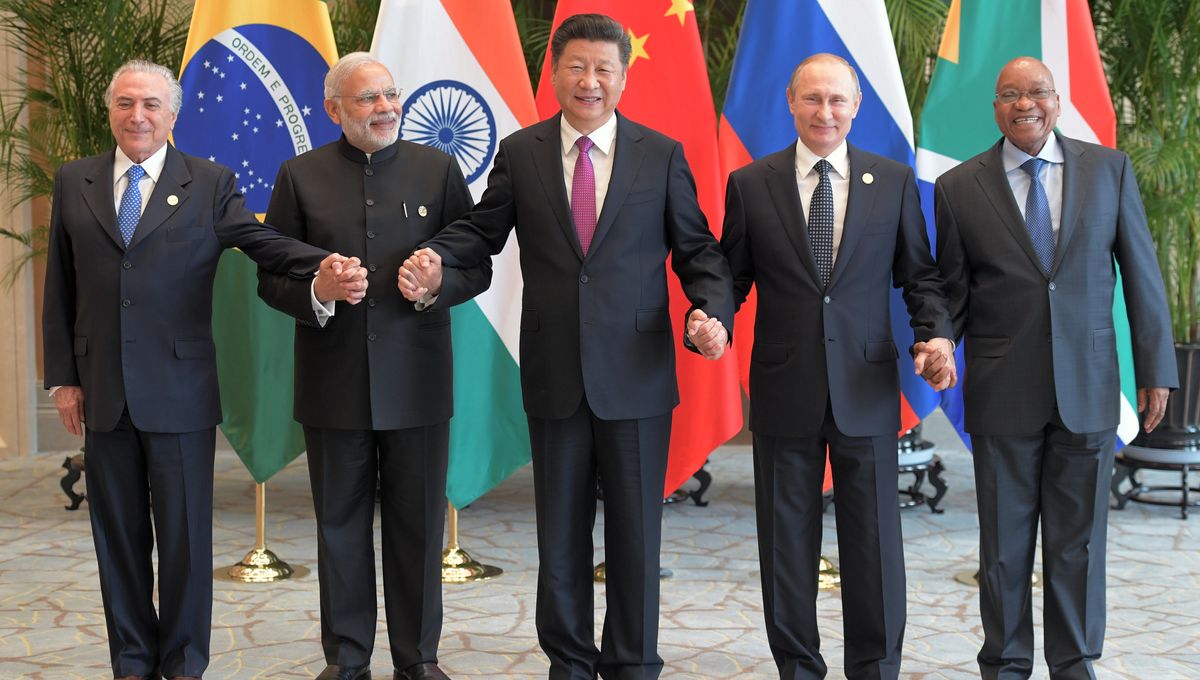
Africa is no longer just a playing field where major powers dictate the rules. It now sets its own conditions and chooses its alliances based on its own interests. The era of imposed guardianship is over—African states now negotiate from a position of strength, seeking balanced economic, security, and strategic partnerships.
This shift does not simply mean rejecting former colonial powers; it signifies a diversification of alliances. While France and the West lose ground, China, Russia, the Gulf countries, and—most importantly—intra-African coalitions are stepping in. Each player brings its own model, ambitions, and limitations.
2.1. China: A pragmatic economic partner
Infrastructure in exchange for access to african resources
If any country has understood Africa’s economic potential and invested massively, it is China. Beijing did not wait for the fall of Françafrique to establish itself as Africa’s leading trade partner, with over $200 billion in annual exchanges.
Where former colonial powers imposed political and financial conditions, China invests directly in tangible development projects: roads, bridges, railways, ports, dams, and industrial zones.
Some of China’s key projects in Africa include:
- The Djibouti-Addis Ababa railway, a vital artery for Ethiopia’s economy.
- The modernization and expansion of Mombasa Port (Kenya), financed by Chinese investment.
- The Great Green Wall, an ecological initiative supported by Beijing to combat desertification in West Africa.
For many African leaders, China’s main advantage lies in its non-interference policy. Unlike France, which often conditions aid on institutional or economic reforms, Beijing does not question governance or human rights issues.
The Risks of Chinese Dependency: Growing Awareness Among African Leaders?
Africa’s turn to China is partly driven by a desire to reduce dependence on Western financial institutions (IMF, World Bank), which are often accused of imposing harmful austerity policies. But this enthusiasm is not without risks.
- Some countries, such as Angola, Djibouti, and Zambia, are heavily indebted to China, raising concerns about Chinese economic neo-colonialism.
- Infrastructure projects, while numerous, sometimes suffer from poor quality.
- Contracts often lack transparency, sparking concerns about corruption and unfair terms.
However, African governments are increasingly aware of these risks and are beginning to renegotiate agreements and diversify their partnerships to avoid over-reliance on a single power.
2.2. Russia: Military Support and Information Warfare
A military alternative to french interventions: The rise of Wagner
While China dominates the economic sphere, Russia has positioned itself as a key military and security partner. Since 2017, the Wagner Group, the Kremlin’s unofficial armed wing, has progressively replaced the French military in several African states.
The Sahel nations—Mali, Burkina Faso, and the Central African Republic (CAR)—facing jihadist insurgencies and political instability, have turned to Moscow as a strategic ally.
Why?
- Unconditional military support, unlike France, which often imposes political conditions.
- A sovereignist narrative, opposing “Western imperialism.”
- Mercenary forces ensuring regime stability, both against internal opposition and external threats.
However, Wagner’s presence is not without controversy:
- Human rights violations, including summary executions and violence against civilians.
- Control over strategic resources, such as gold, diamonds, and oil in CAR and Mali.
- Opaque and costly contracts, raising concerns over long-term financial dependence.
Despite these criticisms, Russia continues to expand its influence. For many African leaders, Moscow provides a credible alternative to Western military interventions, which are often perceived as ineffective or neocolonial.
Winning the Information War on African Social Media
While France struggles to maintain its image, Russia has successfully dominated the information battlefield. Social media platforms like Twitter, Facebook, WhatsApp, and Telegram are flooded with anti-French and pro-Russian content, spread by African influencers and well-orchestrated media campaigns.
Russian propaganda follows a simple yet powerful narrative:
🗣️ “The West has exploited you. Russia stands with you.”
This messaging resonates strongly with a young generation already frustrated by the failures of French interventions and eager to explore alternative paths to security and stability.
2.3. The revival of Intra-African Alliances
Regional coalitions on the Rise: AES, ECOWAS, EAC
For too long, Africa was divided into blocs aligned with external powers. Today, a new dynamic is emerging: African states are uniting to strengthen their autonomy and geopolitical influence.
New initiatives highlight this shift:
- The Alliance of Sahel States (AES): Formed by Mali, Burkina Faso, and Niger after breaking ties with France, prioritizing security cooperation and regional sovereignty.
- ECOWAS (Economic Community of West African States): Despite its internal contradictions, remains a key player in West Africa’s political and economic landscape.
- The East African Community (EAC): Progressing towards a more integrated common market, fostering regional trade and economic development.
The Rise of New African Powerhouses: Nigeria, Morocco, South Africa, Egypt
As global powers compete for influence, several African nations are stepping up as regional leaders:
- Nigeria 🇳🇬: As Africa’s largest economy, it asserts itself as a West African powerhouse in politics, finance, and energy.
- Morocco 🇲🇦: With strategic investments in sub-Saharan Africa, it is emerging as a key driver of economic growth and diplomacy.
- South Africa 🇿🇦: Despite domestic challenges, it remains an economic and political heavyweight on the continent and globally.
- Egypt 🇪🇬: Leveraging its strategic position, it strengthens its role in African and Arab affairs.
Pan-African economic integration: The African Union’s Continental Free Trade Initiative
The most ambitious initiative remains the African Continental Free Trade Area (AfCFTA), which aims to create a unified African market by boosting intra-African trade and reducing dependence on foreign powers.
With these transformations underway, Africa is shifting the global balance of power. No longer a continent to be exploited or divided, it is now an independent strategic player setting its own rules.
III. Africa facing its future: Challenges and opportunities
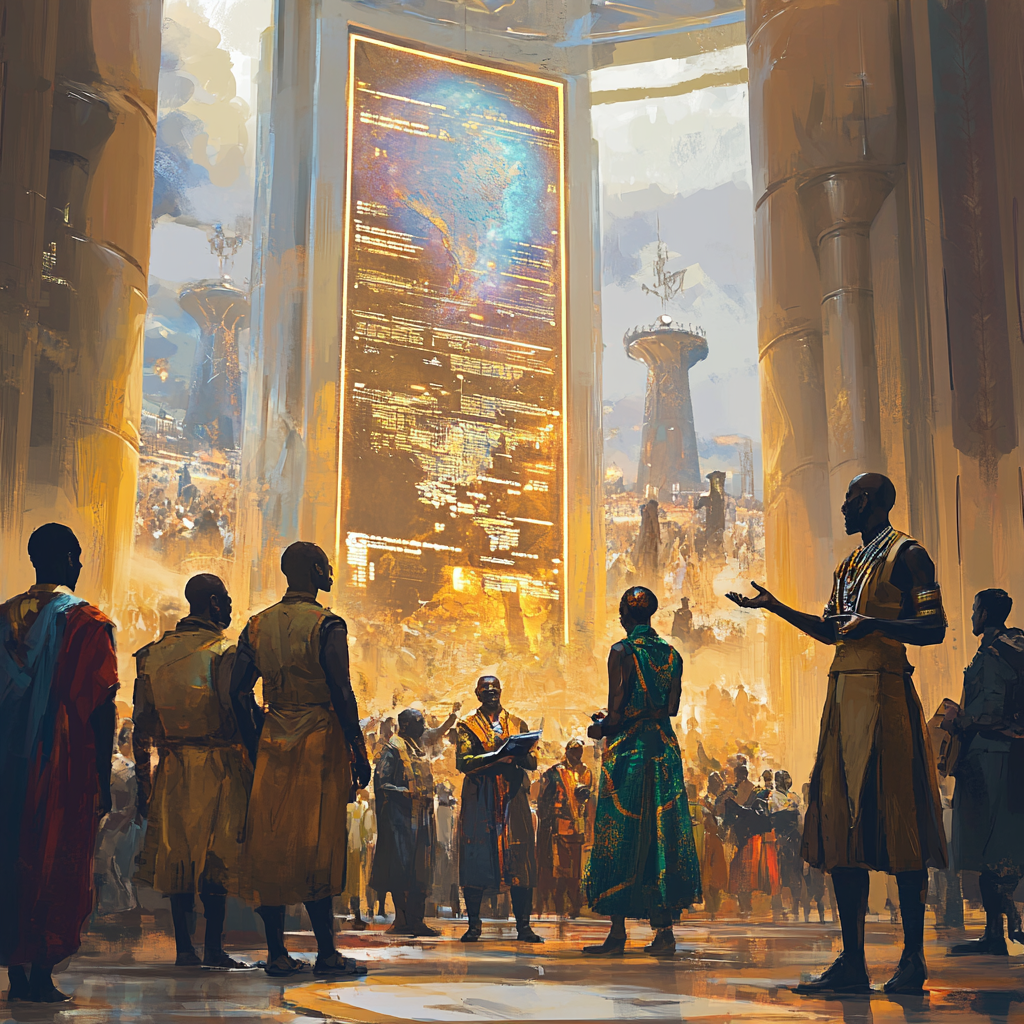
The break with former colonial powers is not an end in itself, but a starting point toward true political, economic, and cultural autonomy. The rejection of external influences, particularly from France, now raises a critical question: What will Africa do with its regained sovereignty?
This historic turning point brings both hopes and challenges. Africa now has the opportunity to reinvent itself militarily, culturally, and economically, relying on its own strengths and choosing partners based on its own interests, rather than historical legacy.
3.1. A regained military sovereignty
Why african countries are expelling foreign military bases
Since independence, Western military presence in Africa has been justified by security cooperation agreements. However, these bases have often served to maintain indirect control over local governments.
Recent expulsions of French troops from Mali, Burkina Faso, and Niger clearly show rejection of foreign interference. The reasons provided by these states are straightforward:
- Foreign forces have failed to protect populations from terrorism.
- Their presence primarily served the interests of Paris, not African nations.
- It perpetuated military dependence on external powers.
Countries like Central African Republic and Chad could follow this trend, gradually reducing Western military presence. Senegal, once a strong ally of France, is also beginning to question its military agreements with Paris.
The rise of more autonomous national armies
The end of foreign military interventions is pushing African states to strengthen their own armed forces. Some nations have accelerated the modernization and restructuring of their military to reduce dependence on external powers.
- Mali and Burkina Faso have expedited the training of their soldiers, while diversifying their arms suppliers (including Russia, Turkey, China).
- Nigeria and South Africa are developing their local defense industries.
- Intra-African defense agreements are emerging for greater sovereignty in defense.
These efforts aim to end the dependency on military aid, which has long hindered African states’ ability to defend their own territories.
African alternatives to western military presence
Instead of relying on NATO or French military bases, Africa is exploring other security models:
- Development of regional military alliances: While the G5 Sahel failed under French influence, new initiatives like the Sahel States Alliance (AES) are emerging.
- Cooperation with other military powers: Russia, Turkey, and the United Arab Emirates are offering alternatives for military equipment and training.
- Rise of African security companies: Private African firms are emerging to replace Wagner and other foreign military groups.
The model is still being constructed, but the trend is clear: Africa now wants to ensure its own security, rather than depend on foreign forces.
3.2. A new cultural and linguistic dynamic
The end of french supremacy: The rise of english, swahili, and portuguese
One of the most visible symbols of African emancipation is the gradual decline of French in favor of other languages.
- English is becoming the language of business and education. Countries like Rwanda and Equatorial Guinea have replaced French with English in their administration and education systems.
- Swahili is emerging as the pan-African language. Already spoken by more than 200 million people, it has become an official language of the African Union and is gaining ground in several East and Central African countries.
- Portuguese and Arabic are also gaining importance, especially with the dynamism of Lusophone countries (Angola, Mozambique, Cape Verde) and the Maghreb region.
The decline of French is also a natural consequence of rejection of France. New generations no longer wish to speak a language associated with colonial domination and neo-colonialism.
An african culture independent from western validation
For too long, African music, cinema, and literature had to pass through Paris, London, or New York to gain legitimacy. Those days are over.
- The film industry is booming with Nollywood (Nigeria), Wakaliwood (Uganda), and emerging studios in South Africa and Senegal.
- African music is dominating the global scene, with artists like Burna Boy, Youssou N’Dour, and Master KG, thriving without the need for French or American record labels.
- African authors no longer seek validation from French publishers: African publishing houses are taking the lead.
Africa no longer waits for Western approval to produce and consume its own culture.
African media taking the lead: Al Jazeera, Africanews, BBC Africa vs. RFI/France 24
As France 24 and RFI lose ground, new African and international media outlets are taking control of the narrative.
- Al Jazeera and BBC Africa are attracting increasing African audiences.
- Africanews, based in Congo, is becoming a credible alternative to Western media.
- African digital platforms are growing: blogs, YouTube, podcasts, TikTok.
Africa now tells its own story, without Western filters.
3.3. A diplomatic and economic repositioning
Chosen partnerships, not forced ones: Asia, Latin America, Gulf Countries
Rather than relying on a single power, Africa is diversifying its diplomatic alliances.
- India is becoming a major strategic partner, especially in the technology sector.
- Gulf countries (UAE, Saudi Arabia, Qatar) are making massive investments in Africa.
- Latin America is strengthening ties with Africa, notably through Brazil.
These new relationships break the historical monopoly of Europe and the United States.
The bet on African industrialization
Africa no longer wants to be a mere supplier of raw materials. Many countries are now investing in local industrialization.
- Nigeria and Egypt are developing automotive industries.
- Ghana and Ivory Coast are looking to process their cocoa locally rather than exporting it raw.
- Kenya is focusing on technology and innovation, with hubs like the “Silicon Savannah”.
The goal is clear: end economic dependency and create wealth locally.
African leaders commanding a voice on the global stage (BRICS, G20, UN)
Africa is no longer a spectator but a key player in major international summits.
- South Africa and Ethiopia are members of the G20.
- The BRICS (Brazil, Russia, India, China, South Africa) is becoming an alternative to the G7.
- African leaders are demanding a reform of the UN Security Council.
Far from being marginalized, Africa now imposes its priorities on the global debate.
A world where Africa sets the rules
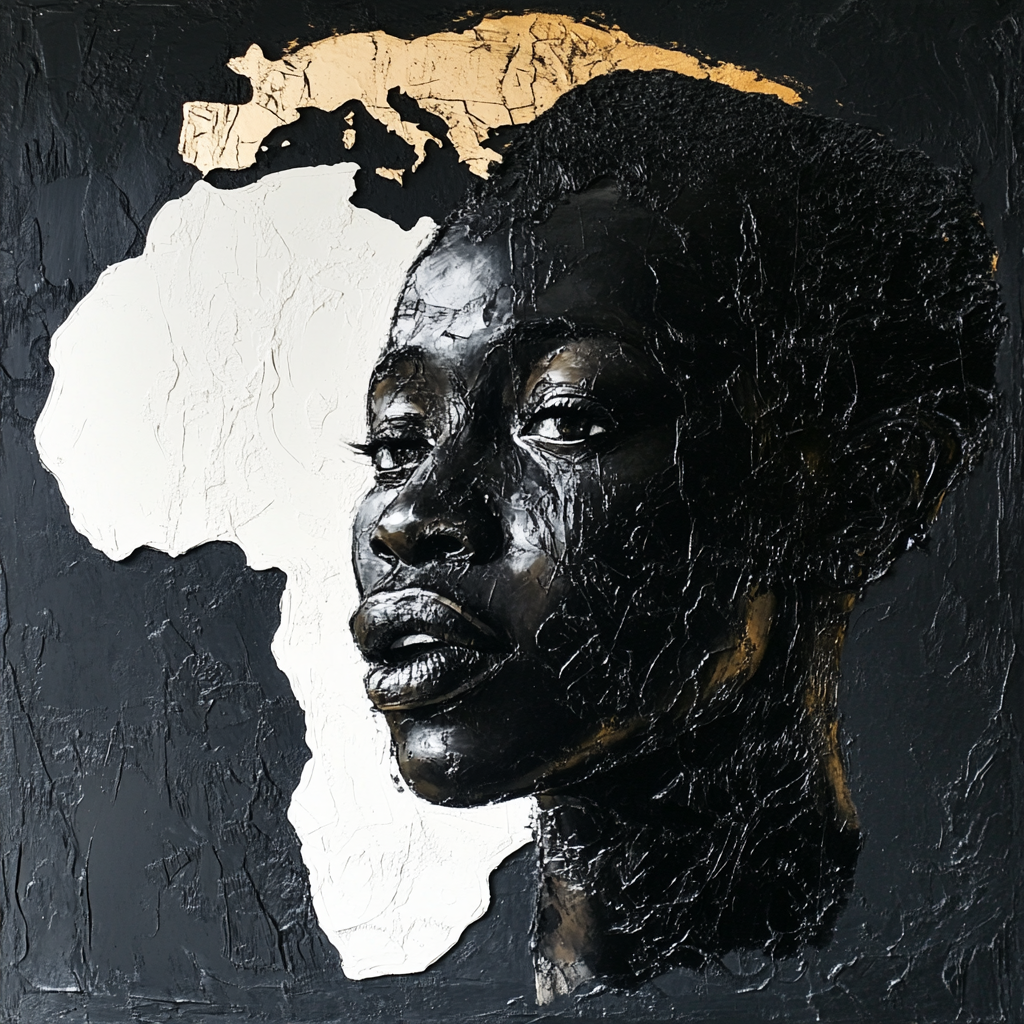
It’s not France that is retreating, it’s Africa that is advancing. Far from being a simple rejection of the former colonial power, the break with Paris is part of a larger movement: that of a continent reclaiming its future.
For centuries, Africa was seen as a territory to be exploited, a peripheral region dependent on decisions made elsewhere. Today, that vision belongs to the past. Africa is no longer a passive field of influence, but a strategic actor in a rapidly shifting multipolar world.
The changes underway go far beyond relations with France. They reflect a deeper will: to break free from all forms of domination.
Economic domination? Africa wants to industrialize its resources instead of exporting them raw.
Military domination? Foreign bases are being dismantled, and national armies are being strengthened.
Cultural domination? Africa is creating its own narratives, outside the Western lens.
But this emancipation is just the first step. The urgency now is to build solid structures to prevent other forms of domination from replacing the old ones. The danger exists: replacing one influence with another (whether Chinese, Russian, or any other) would mean changing masters without truly gaining independence.
Africa no longer needs a tutor. It is now imposing its own rules. Through its regional coalitions, new alliances, and economic strategies, it is becoming a force that the entire world must reckon with.
Will the 21st century finally be that of a sovereign, powerful, and united Africa? All signs point to the fact that history is now being written on Africa’s terms.
